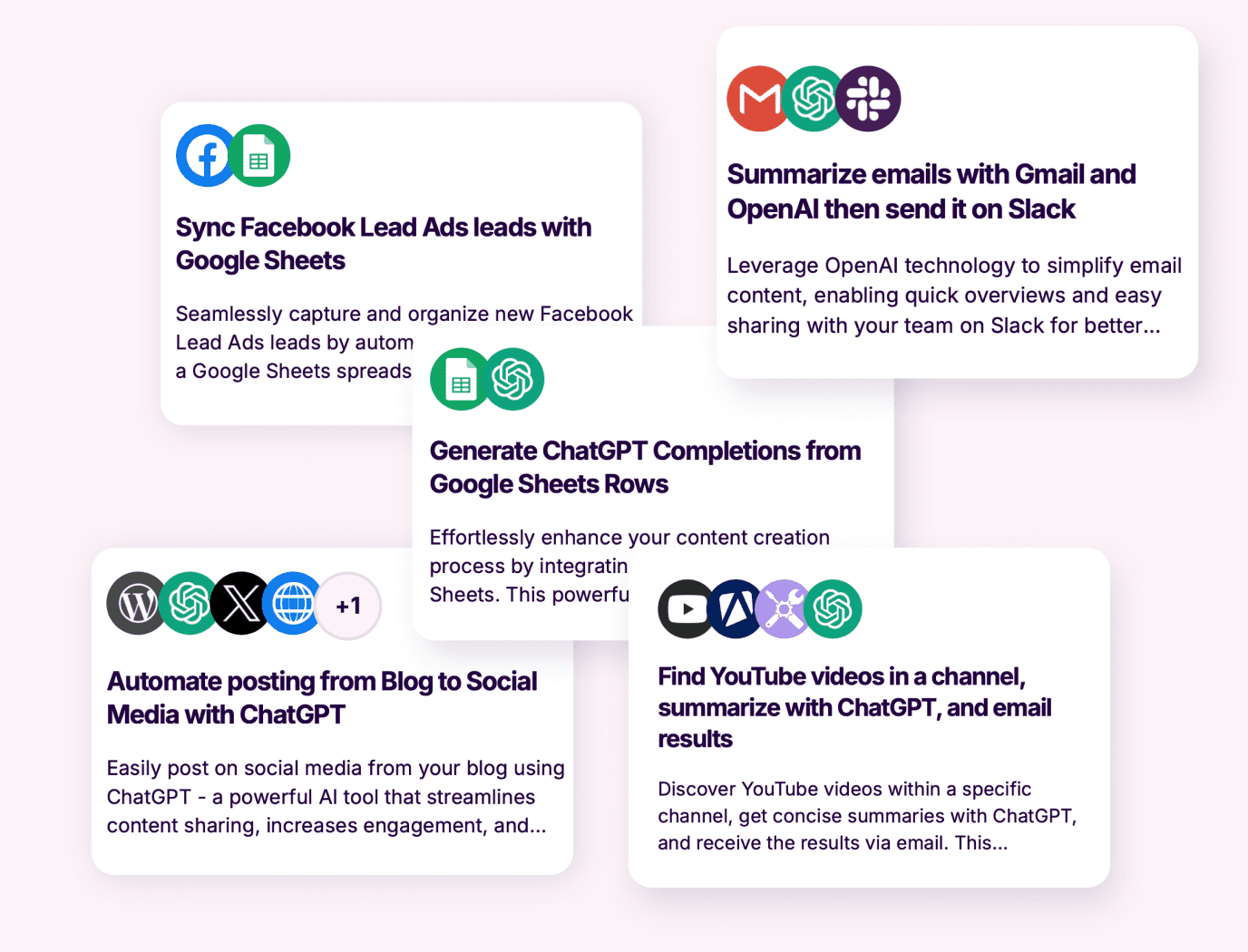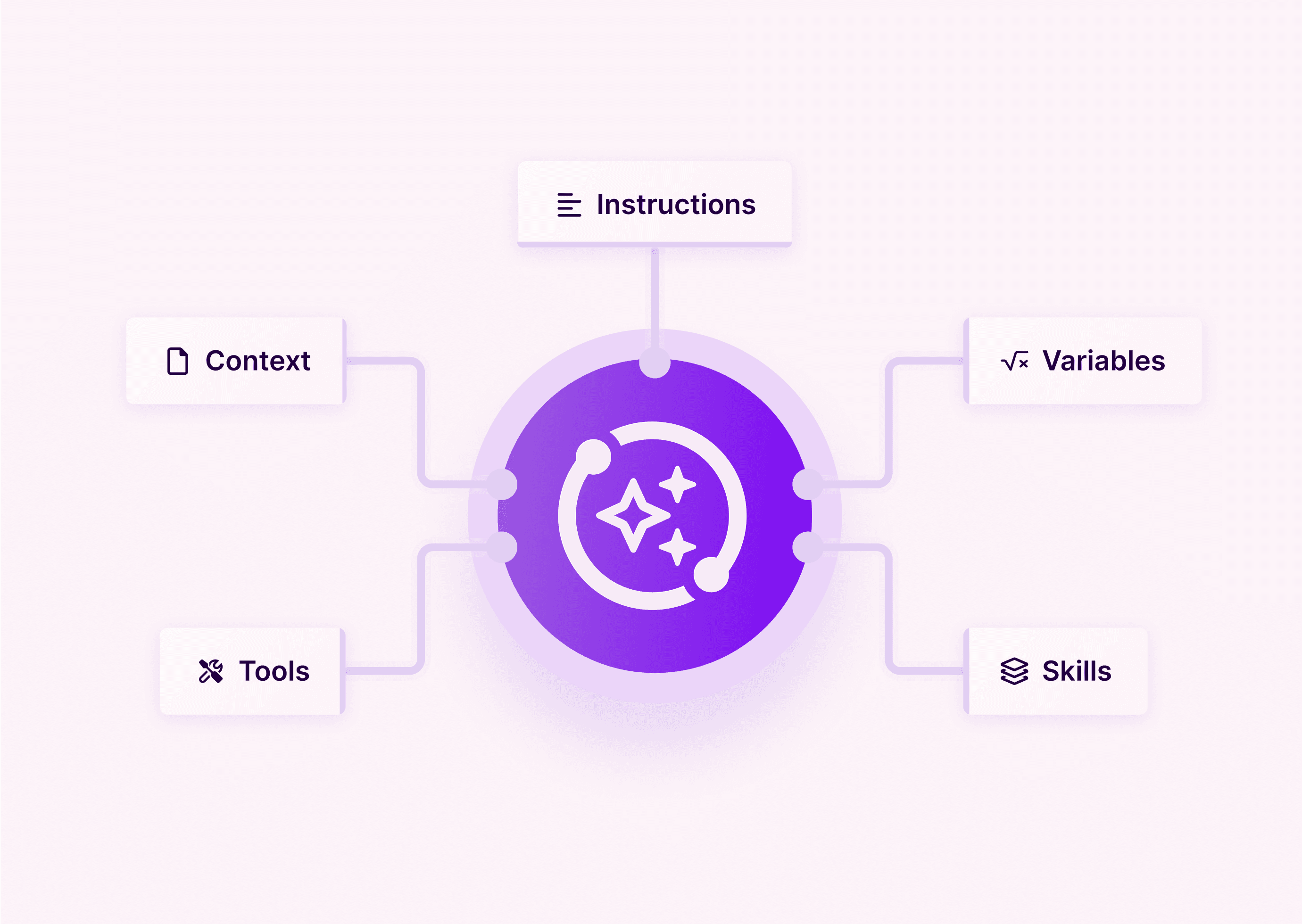Agentic automation: AI-powered automation that adapts to your business needs
Discover how agentic automation uses AI to make real-time decisions and adapt to changing business needs - and how Make AI Agents deliver adaptable, intelligent solutions that grow with your needs.


What is agentic automation?
Agentic automation is a next-generation automation approach where applications, including AI-driven agents, autonomously perform non-deterministic tasks, adapting in real time to changing conditions.
Make users are already discovering that agentic automation is the next step in the future of automation. It's amplifying workflows for them by adding adaptability, autonomy, and real-time decision-making. Make AI Agents open up even more possibilities, allowing you to take the next step in automation.
Smarter automation that thinks and acts in the moment
While traditional workflows provide structured, predictable execution and AI-powered workflows bring content generation and pattern recognition, agentic automation builds on both by incorporating fuzzy logic and autonomy. This allows processes to be more resilient, adaptable, and efficient, reducing setup time and the need to predefine every edge case.
Instead of just being more efficient at simpler tasks (content creation for example), agentic automation can infer and understand with contextual awareness, allowing workflows to adapt in real time without needing constant human input.


Make AI Agents: the next step in automation
Make AI Agents let you take advantage of the benefits of agentic automation. This means you can now build, customize, and manage intelligent AI agents that automate your business processes, adapt in real-time, and reduce complexity like never before.
How does agentic automation work?
Agentic automation works by using AI to act as an autonomous problem solver that interprets goals and conditions as they happen.
The AI builds on global knowledge, business tools, and user-specified context to take action.
Agentic workflows allow users to amplify traditional automation by facilitating AI that can adjust its behaviour dynamically.
The net result is smoother automation across multiple workflows, saving time and improving efficiency.
Want to find out how Make’s Enterprise plan can benefit your business?
Schedule a call with our sales team now and we can talk through the options.
AI tools available on Make
Meet Make AI Agents
The next level of automation is here: goal-driven, flexible, and smart.
Why businesses are adopting agentic automation
Empowering businesses to improve efficiency, reduce costs, and stay competitive in dynamic environments.
Agentic workflows can respond to new inputs and changing circumstances dynamically.
Automation can grow alongside your business without users having to pre-plan for all possible eventualities.
Agentic workflows can manage a variety of tasks, including edge cases, with precision.
With AI overseeing routine tasks, businesses can free up valuable time and resources.
Navigating the challenges of agentic automation
As these systems become increasingly autonomous, comprehensive compliance tools - which help preserve the integrity of automated operations - become more critical.

Given that agentic processes depend on large volumes of data, developing robust data privacy and ethical AI practices becomes ever more critical.

Rolling out these systems typically involves intricate setups to mesh with existing infrastructures, which can be resource-heavy and time-consuming.
How is security built into agentic automation?
Security is built into every AI-driven workflow in Make, ensuring a controlled and protected automation environment.
- Connections to external systems follow industry-standard encryption protocols.
- Every automation action is logged with full execution history and reasoning steps.
- Encrypted storage, automated backups, and strict access policies safeguard customer data.
- Security testing, including third-party audits and DDoS protection, defend against threats.

